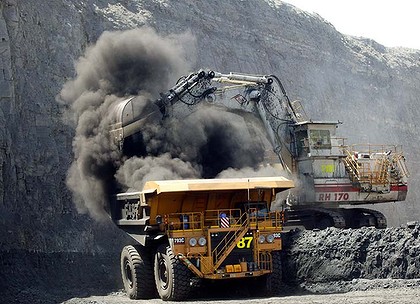Coal counted in resourceful community
 A joint report from 28 different medical groups says the annual health bill from the Hunter Valley coal industry is in the hundreds of millions.
A joint report from 28 different medical groups says the annual health bill from the Hunter Valley coal industry is in the hundreds of millions.
The Coal and Health in the Hunter report by the Climate and Health Alliance estimates that the health damage costs about $600 million annually as a result of air pollution, and other effects of small particles in the air.
The particles of coal - which measure just 2.5-10 millionths of a metre across – “lodges into the linings of the blood vessels and causes inflammation and irritation, and leads to long-term cardio-vascular and lung disorders”, Liz Hanna, president of the alliance and epidemiology researcher at the Australian National University, told Fairfax Media.
“It's not just people falling ill today, but also the negative impacts [coal is] going to have on their systems so that they end up with cancers in years to come.”
The report says that the particulate matter from burning coal for electricity in the valley, as well as the release of chemicals from blasts in the Hunter's large open-cut coal mines, undermine the health of residents.
It says there are risks posed by noise and water pollution as well.
Hunter Valley mines produce about 145 million tonnes of coal a year. From this, 126 million tonnes is exported, while the rest is burnt in the region's power stations.
A NSW Minerals Council report last year estimated Hunter coal provides $6.3 billion each year to the state's economy and employs more than 18,000 people, but the new health report says these benefits do not come without costs.
If the broad climate change costs from coal-fired power are tallied as well, the damage bill is into the billions, the CAHA report said.
The current annual output of Hunter coal is equal to about 348 million tonnes of carbon dioxide equivalent when burnt.
Under US government modelling of the social cost carbon dioxide – about $US37 ($47) per tonne - the financial impact of the Hunter would be about $16.4 billion.
But current projections show that Hunter coal production will expand to 243 million tonnes by 2022, if current mine expansion plans continue
At that rate, the social cost would increase to $26 billion. It would also lead to a 50 per cent increase in coal trains and therefore even more coal dust problems for residents.
“There's a total disassociation of who gets the benefits and who gets the pain, and we don't think that's particularly moral or just,” Dr Hanna said.
Dr Hanna is a signatory to an open letter to NSW Premier Mike Baird, which has called for an end to coal projects in the Hunter.
“There should be a moratorium on any further expansion, and essentially, coal should be phased out,” she said.








 Print
Print